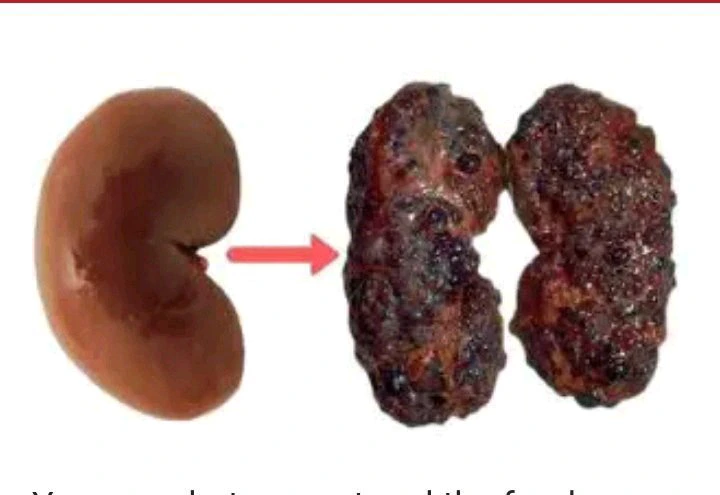The kidney is an important organ in the body that facilitates the elimination of waste via urine. Before returning blood to the heart, the kidney also directs the blood.
The kidney has 1,000,000 nephrons that utilise nutrients and expel waste through the blood that it conducts. Components of the kidney include the renal corpuscle, glomerulus, bowman container, proximal tangled tubule, henle circle, distal tangled tubule, and renal cotex. The ureter is a vital component of the kidney that carries urine from the kidney to the bladder before it is expelled from the body.
According to Healthline, if one begins to experience the following adverse symptoms, a renal test should be performed.
The presence of swelling over the lower legs, foot, or legs is one of the earliest symptoms.
Edema that pits when pressure is applied is edoema that pits. As renal capacity decreases, salt maintenance occurs, leading to edoema in the shins and lower legs. In conclusion, anyone with newly developing pedal edoema must see a nephrologist immediately for an evaluation of their renal function.
Puffiness around the eyes
It refers to swelling or puffiness around the eyes caused by the accumulation of fluid in cells and tissues. The kidneys may be the initial indicator of a problem. Protein leakage through the kidneys is more noticeable in persons who have a large amount of protein loss. When the body loses protein, the intravascular oncotic pressure decreases, resulting in extravascular liquid accumulation in locations such as the eyes.
Changes in the frequency of urination It is essential to observe the volume of urine produced. Especially in the evening, urination may become less frequent or you may feel the need to urinate more frequently (named as nocturia). It is possible that the renal filtration units have been affected or will be harmed as a result of this medication. This may indicate a urinary tract infection or a swollen prostate in males.
Blood or foam in the urine.
Unreasonable foaminess indicates the presence of protein in the urine (which under typical conditions ought to be unimportant). When the kidney’s filtering ability has been damaged or is deteriorating, protein and platelets begin to leak into the urine. Blood in the urine can be indicative of cancers, kidney stones, or any disease, in addition to renal failure.
Spinal pain or pain in the lower abdomen.
Pain in the back, side, or beneath the ribs is an early indicator of a kidney ailment such as renal math or pyelonephritis. Infection of the bladder or the presence of a ureter stone may also cause lower abdominal pain (the cylinder interfacing the kidney and bladder). These side effects should not be disregarded and should be further evaluated with a standard imaging focus, such as an X-ray KUB or an Ultrasound Abdomen.








